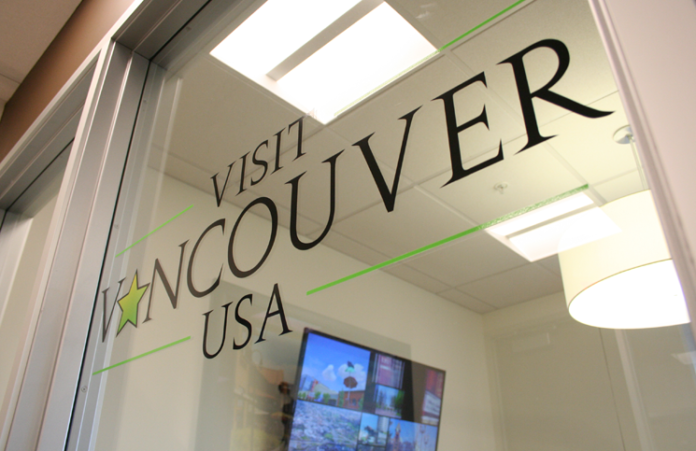Back in August the City of Vancouver announced that it was accepting applications to allocate lodging tax funds for tourism growth. That’s great news for a city that has been competitive in many areas, including downtown business revitalization, but has been lacking in tourism marketing dollars for several years.
The State of Washington allows municipalities and counties to charge up to a four percent lodging tax on hotels, motels, bed and breakfasts, campgrounds and the like. According to Jan Bader, City of Vancouver program and policy development manager, that tax held steady at two percent until 1998 when it was decided to increase it to the current four percent to facilitate the creation of the Vancouver Convention Center. The additional two percent was specifically earmarked to cover debt servicing of the 226-room facility that was built in 2005.
The formula went along for several years with two percent of the lodging tax going to fund community-related projects and the two percent increase covering the Vancouver Convention Center loan payments. Then the economy took a downturn and business as usual needed to be reconsidered.
“When the recession hit, the lodging industry took a huge hit. It was decided (by the Lodging Tax Advisory Committee) to funnel all four percent (of the lodging tax) for a limited time to the Convention Center to save it,” Bader said.
The Lodging Tax Advisory Committee is comprised of 50 percent representatives from the hotel/motel community and 50 percent businesses and organizations eligible to receive lodging tax funds. This is a group who understood, better than possibly anyone else, that preserving the Convention Center had a greater long-term value for the City than the sacrifices that would result from their short-term decision.
Now that same group is excited for the economic growth being enjoyed and the opportunity to, once again, apply for funds that will market the strengths of the area to potential visitors.
Visit Vancouver USA, Vancouver’s official destination marketing organization, could not be more pleased.
“Our priority continues to be that we want to make sure to keep Vancouver competitive as a tourism destination against similarly-sized destinations for groups and leisure like Spokane, Tacoma, Everett, Yakima and the Tri-Cities,” said Jacob Schmidt, director of marketing and communications for Visit Vancouver.
During the lean years the efforts of Visit Vancouver were financed solely by a Tourism Promotion Area (TPA) assessment. This is a $2 per night fee imposed on overnight lodging in hotels with rooms of 40 or more in their inventory. It is pooled together and used to target increased tourism to an area. As a result of economic uncertainty during the same years the lodging tax was unavailable, this secondary funding stream was reduced to a trickle.
Carla Rise, secretary for the Clark County Lodging Association and general manager of Residence Inn Vancouver, is a strong supporter of Visit Vancouver’s efforts.
“Visit Vancouver USA is our primary tourism marketing office. It brings visitors to our area through a variety of initiatives including assisting meeting and tourism planning,” Rise said. “We would now like to see some of that money (the lodging tax) go to Visit Vancouver to better compete with other DMO’s (destination marketing offices) that we compete with.”
Bader is pleased with the cooperative efforts of the Lodging Tax Advisory Committee and the steps that were taken to ensure the security of the Vancouver Convention Center. She’s now focused on the City’s solid financial position and the opportunity to, once again, fund community projects that will increase tourism spending. She shared that the Lodging Tax Committee has a final list of their funding recommendations; it will be presented to the City Council on November 21; and could be voted on for approval as early as November 28.




